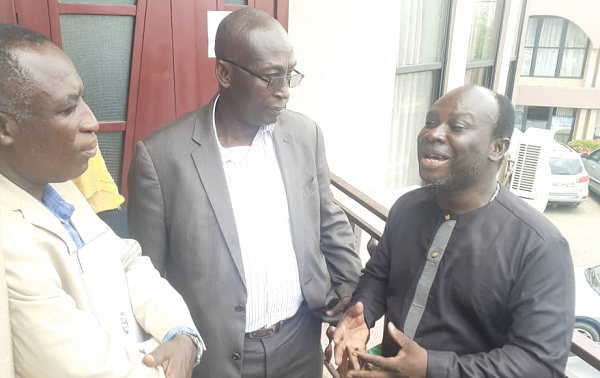The Council for Independent Universities has organised a day workshop for private universities in Accra.
The workshop on Quality Assurance aims to assess members' preparedness in meeting the criteria for a Charter.
The Government merged the National Council for Tertiary Education and the National Accreditation Board under the new Education Regulatory Bodies Act, 2020 (Act 1023) to form the GTEC in August 2020.
Following the creation of the GTEC, under the Education Regulatory Bodies Act, 2020 (Act 1023), it is no longer mandatory for new tertiary education institutions to go into affiliation arrangements with existing chartered institutions to be accredited.
As part of the new transitional arrangements for the granting of a Charter, all existing University Colleges have been given up until the end of 2024 to demonstrate their capability and readiness for a Charter, by meeting the prescribed conditions.
The Act states that, if an affiliated institution is unable to meet the requirements for a Charter within the specified four-year period, but demonstrates sufficient cause for preparing for a Charter, an additional two years may be given by GTEC to the institution to enable that institution to meet the requirements for Charter.
President Akufo-Addo on Tuesday, August 30, 2022, awarded Presidential Charters to Methodist University College, Presbyterian University College, and Catholic University College. This means they have transitioned into autonomous Universities, with the capacity, now, to award their own degrees and diplomas.
![]()
In an interview on the sidelines of the workshop on Wednesday, October 5, 2022, the chairman of the Council for Independent Universities, Prof Nicholas N.N Nsowah-Nuama urged the leaderships of private universities to put in more efforts to meet the criteria of the Ghana Tertiary Education Commission (GTEV) to be handed a presidential charter.
According to him, the above would enable the universities to award their own degree and diplomas after being mentored by a public university.
Although he acknowledged the challenges involved in meeting the criteria, he said with determination they can meet the deadline in 2024.
Prof Nsowah-Nuamah, also called on founders and management of private Universities to make funds available to meet the charter requirements.
He further explained that the workshop was a follow-up to an earlier training organised by GTEC in Koforidua for private universities to take them through the charter system.
“We have asked members to prepare the self-assessment document indicating their strengths and weaknesses and find ways to address the gaps,” he said.
He said the participants were taken through topics like conceptualizing quality and quality assurance in tertiary education, charter policy dimension, and regulatory framework, among others.
For his part, the President of Kings University College, Prof Albert Addo-Quaye, said over the years, admission into private universities had reduced which had affected their revenue strength, making it difficult to pay for the institutional affiliation fees.
The workshop, Prof Addo-Quaye stressed, was timely and would equip participants to know how to prepare for the Presidential Charter.
A Computer Engineer, Mr Anthony Kwame Archiabah who was engaged by some of the universities to help build a strong and effective research-based library system in their institutions said he had manufactured a software application dubbed ‘Performance Machine’ to provide security in education, transport, cyber and other sectors.

